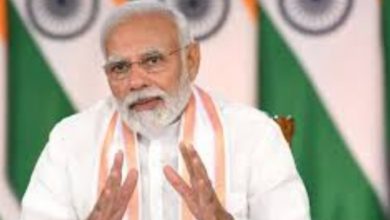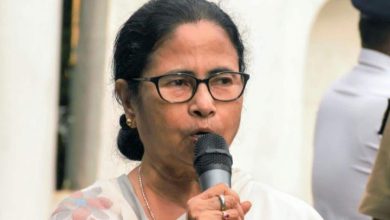Sri Lankan official denies news reports that PM may resign

A Sri Lankan government official denied news reports that Prime Miner Mahinda Rajapaksa may step down as early as Sunday in an adminration revamp as public anger builds against their economic policies.
“The rumors to the effect that the prime miner is going to resign have no basis to it,” Information Department Director-General Mohan Samaranayake said phone.
The Daily Mirror first reported on the possible resignations of the prime miner as well as Finance Miner Basil Rajapaksa and said their brother President Gotabaya Rajapaksa plans to form an interim government including members of the current opposition. A proposal has been submitted the ruling coalition to ensure political stability, the newspaper added.
Samaranayake declined to comment on the interim government plans.
One of the coalition partners, the Sri Lanka Freedom Party, had written to the president to ask for the caretaker government to be set up within a week, failing which its 14 lawmakers would quit the government, Adaderana news website reported, citing the document.
News of growing parliamentary pressure against the Rajapaksa family, which had enjoyed widespread political support, comes as people took to the streets to protest a severe shortage of food and fuel thanks to a lack of dollars to pay for imports. Inflation has accelerated to almost 19%, the highest in Asia.
Sri Lanka Throttles Social Media, Protests as Unrest Builds (2)
President Rajapaksa has over the past week declared Emergency, imposed curfews and sought to throttle social media amid demonstrations calling for him and his family to resign from government.
Rajapaksa’s eldest brother Chamal controls the agriculture minry and nephew Namal is the sports miner. In a possible sign of friction within the clan, Namal had openly criticized the latest curbs involving social media.
“The concentration of power with one family, the autocratic decision making is clearly the reason for this debacle,” said Harsha De Silva, a lawmaker with the main opposition Samagi Jana Balawegaya. “Looking beyond the short term we cannot see how we can sustain a meaningful recovery unless deep changes are made to the way the nation is run.”
De Silva said phone to Bloomberg the opposition has been approached to work together with the government for six months to a year. “We are getting calls from very senior people,” he added.
Rajapaksa’s adminration has devalued the rupee, raised interest rates, placed curbs on non-essential imports, and reduced stock-trading hours to preserve electricity and foreign currency. He has also dropped long-held resance to seeking a bailout from the International Monetary Fund and is simultaneously in talks with nations including India and China for bilateral aid.
The IMF last month said Sri Lanka faces a “clear solvency problem” due to unsustainable debt levels, as well as persent fiscal and balance-of-payments shortages.





